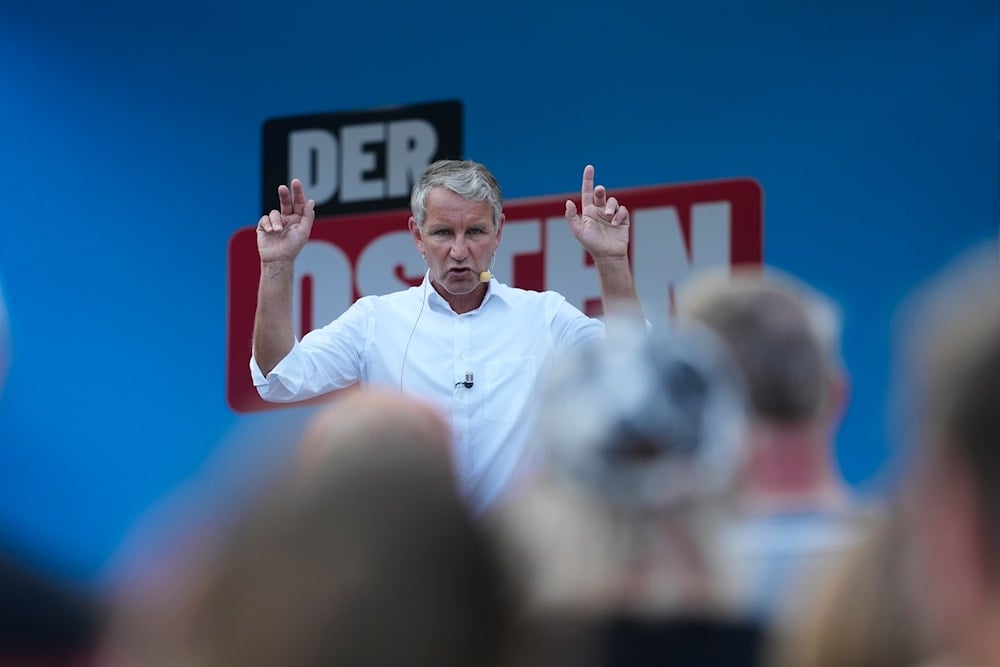AfD emerges victorious in Germany's Thuringia, comes in 2nd in Saxony
State elections in eastern Germany have marked the victory of far-right AfD and the rise of Euroskeptic BSW.
-

Bjorn Hocke, top candidate of the far-right Alternative for Germany party, or AfD, speaks at an election campaign rally of the party for upcoming state elections in Suhl, Germany, on August 13, 2024. (AP)
Germany's far-right Alternative for Germany (AfD) is celebrating a "historic success" after emerging victorious in the eastern state of Thuringia.
The AfD took the lead over the conservative Christian Democratic Union of Germany (CDU) and the governing parties, after securing almost a third of the vote in Thuringia. This marked the first win for the far-right in a state parliament election since WWII.
However, the other rival parties are unlikely to ally themselves with AfD, meaning that it is unlikely to form a local government in Thuringia.
In the neighboring state of Saxony, the AfD came in close second.
The CDU was victorious in Saxony, securing 31.9% of the vote, while the AfD received 30.6% of the vote.
Meanwhile, The Left suffered an astounding loss in Saxony, losing more than half of the vote percentage that it received in the previous election. The Sahra Wagenknecht Alliance – Reason and Justice (BSW), a left-wing party formed by ex-The Left members, came in third in Saxony, where it gained 15 seats in its first-ever participation in German elections
BSW also won 15 seats in Thurngia and came in third place, however, gained a larger share of the public vote.
Read more: Most Germans back snap election as coalition approval falls
AfD's victory 'bitter': Scholz
Chancellor Olaf Scholz of the Social Democratic Party (SDP) said that the results were "bitter" and called on mainstream parties to form state governments that exclude the far-right.
"The AfD is damaging Germany. It is weakening the economy, dividing society, and ruining our country's reputation," he said in a statement to Reuters.
Meanwhile, the AfD's top candidate in Thuringia, Bjorn Hocke, hailed the "historic victory".
Hocke has had a controversial political career, as his party had been fined for using a Nazi slogan at a previous time, while he denies knowingly doing so.
The rise of the AfD and its inevitable transition from popular support to securing state positions has been anticipated for some time. This has been especially true due to the current German government's approach to geopolitics, as well as its support to Kiev, which has had immense repercussions on its economy.
With sanctions on Russia and unrelenting support to Kiev, as well as deteriorating ties with China, the German ruling coalition has come under severe criticism, allowing the far-right anti-immigration and Eurosceptic party's rise in German politics.
Read more: Germany halts Over $3.3bln in military funds to Ukraine amid disputes

 3 Min Read
3 Min Read








